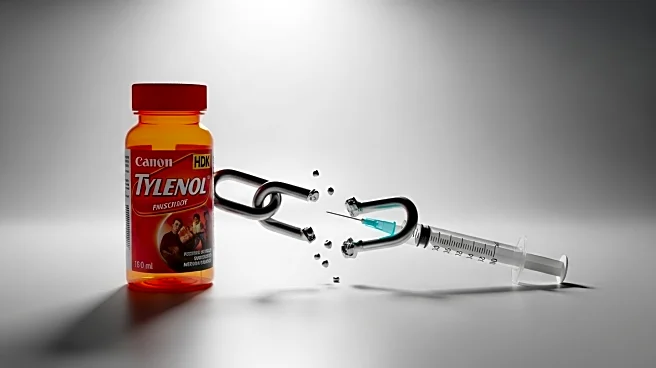What is the story about?
What's Happening?
President Donald Trump has made claims linking Tylenol, vaccines, and autism without presenting new medical evidence. During a White House news conference, Trump advised pregnant women against using Tylenol, citing potential autism risks. He also reiterated debunked theories about vaccines contributing to autism rates. The announcement aligns with the Make America Healthy Again movement's focus on autism causes. Trump's statements have sparked controversy, with medical experts and organizations challenging the lack of scientific backing for these claims.
Why It's Important?
Trump's promotion of unproven links between Tylenol, vaccines, and autism could have significant implications for public health and policy. The claims may influence public perception and behavior, potentially leading to decreased trust in established medical practices and vaccines. Health organizations and experts have expressed concern over the potential impact on maternal and child health, emphasizing the importance of evidence-based recommendations. The controversy highlights the need for clear communication and reliable data in addressing complex health issues.
Beyond the Headlines
The broader implications of Trump's statements include ethical concerns about spreading misinformation and the potential consequences for public health. The controversy underscores the importance of scientific integrity and the role of government officials in shaping health policy. The debate may prompt discussions on the balance between free speech and responsible communication, particularly in the context of health-related issues. Long-term, the situation could influence public trust in health authorities and impact vaccine uptake rates.
















